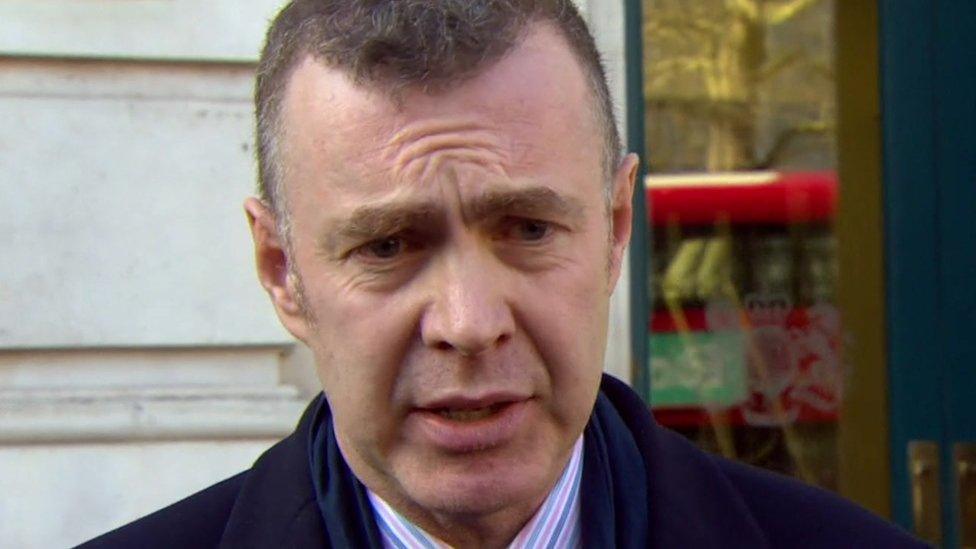Welsh independence: Is Wales becoming indy-curious?
- Published
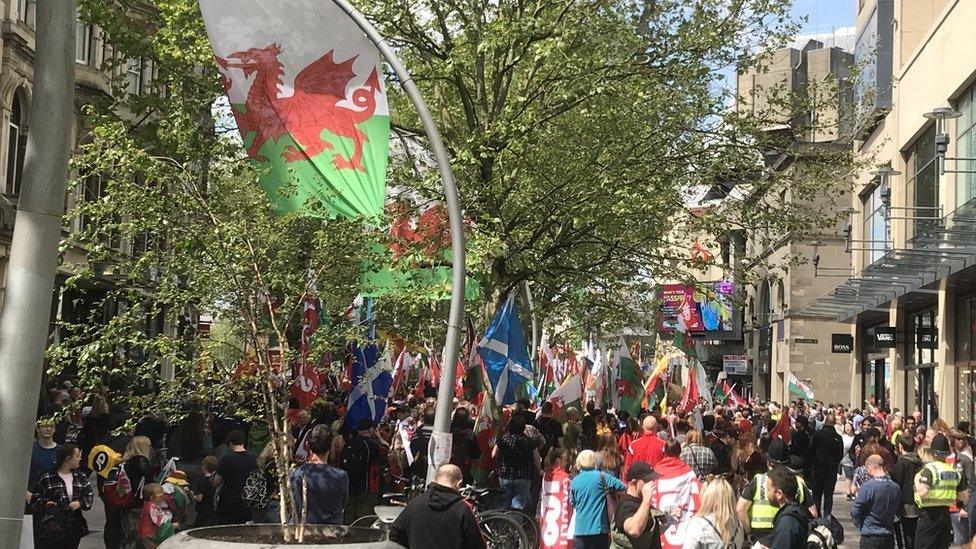
An independence rally in Cardiff in May attracted the crowds
The phrase has come to prominence in Wales' national conversation in recent months.
First Minister Mark Drakeford has denied he is indy-curious, but his predecessor Carwyn Jones said the "shambles" around Brexit at Westminster was prompting people to start asking questions about independence.
Is something afoot? Is resistance to the concept beginning to crumble?
BBC Welsh affairs editor Vaughan Roderick says "there is not much evidence of growing support for independence in itself, but there is evidence that it's being talked about a lot more."
He told BBC Radio Wales the history of the independence movement is "largely the history of Plaid Cymru".
Speaking on a special Breakfast with Claire Summers programme, which explored indy-curiosity, he said: "What's interesting is you now have a broader movement.
"For instance at the Welsh Labour conference a few months ago there was a fringe meeting by a group called 'Labour for independence'.
"Now that would never have been allowed a few years ago.
"At the National Eisteddfod this year Carwyn Jones is addressing a meeting of Yes Cymru, a pro-independence group.
"He's addressing it to oppose independence but I don't think he would have accepted that invitation a couple of years ago.
"So it is being talked about more but's it's a conversation, if you like, rather than a huge change of mind by the Welsh population."
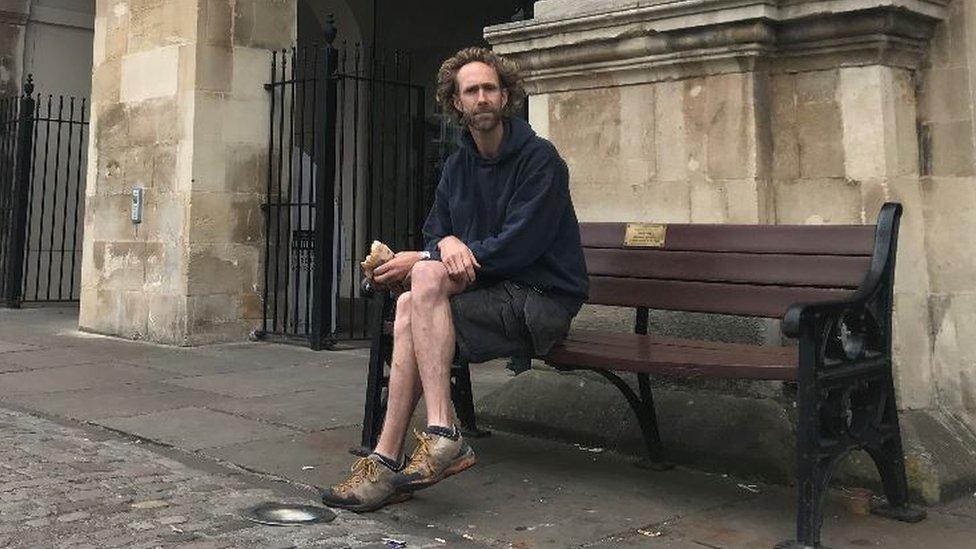
Barney Ashton: "I'd like to be as far away from England as possible right now"
In a random sample of views in Monmouth, a couple of miles from the English border, people were happy to join that conversation.
Tom Innes, 65, owner of Fingal Rock wine shop on Monnow Street, said he was "in favour of the United Kingdom".
"I'm all for regional identity. I'm a strong supporter of the Welsh language and I think it's important that Wales should have its own identity.
But looking into the future, you just don't know what's going to happen in any respect anyway. So if Wales became independent, it's another unknown. So I'm in favour of retaining the whole of the United Kingdom."
Barney Ashton, 43, who lives in the town, is more open to the idea of independence.
"The way things are going with British politics at the moment and the way that it's governed centrally in England and looking at who's about to come into power - I'd like to be as far away from England as possible right now," he said.
"If we have a bit more sense in Wales and we could separate ourselves and make a bit more of our own decisions, it might be wise.
"I think Wales makes some good decisions already, you get free prescriptions. I used to live in England, I do feel a bit more cared for in Wales."
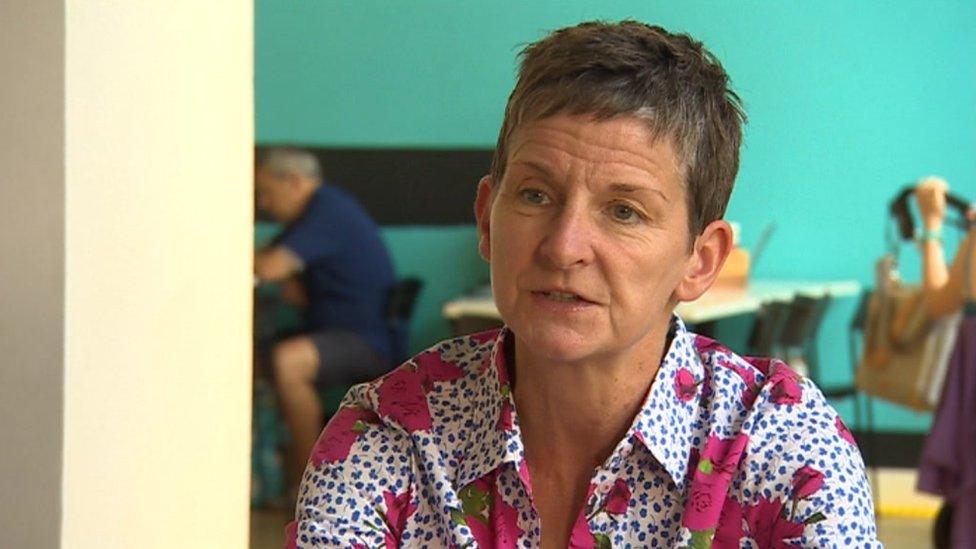
Prof Laura McAllister: "There is a real energy around an alternative which might be independence"
Laura McAllister, Professor of Public Policy at Cardiff University, told the programme the indy-curious sentiment is "very much related to the weird and wonderful political context in which we find ourselves".
Can you measure curiosity about something using opinion polls? She says that is difficult, but not impossible.
"Some of the polls have actually put scales in, where people talk on a one to 10 scale about their support for independence and if you aggregate some of that around the centre then at least four in 10 of our population is interested in the concept of independence," she said.
Prof McAllister agrees that interest is being prompted by Brexit, how Brexit is being handled and what that says about the current political system.
"And also an awareness that Scotland has already begin to legislate in the Scottish Parliament for a second independence referendum," she said.
"So having had the huge attention and publicity around the first referendum in Scotland in 2014 the public's eyes have been opened to a constitutional possibility.
"That's a big difference to actually supporting it entirely but I think we're seeing generational change too amongst younger Welsh people, and particularly people who are angry at some of the policies that have impacted on Wales and there is a real energy around an alternative which might be independence."
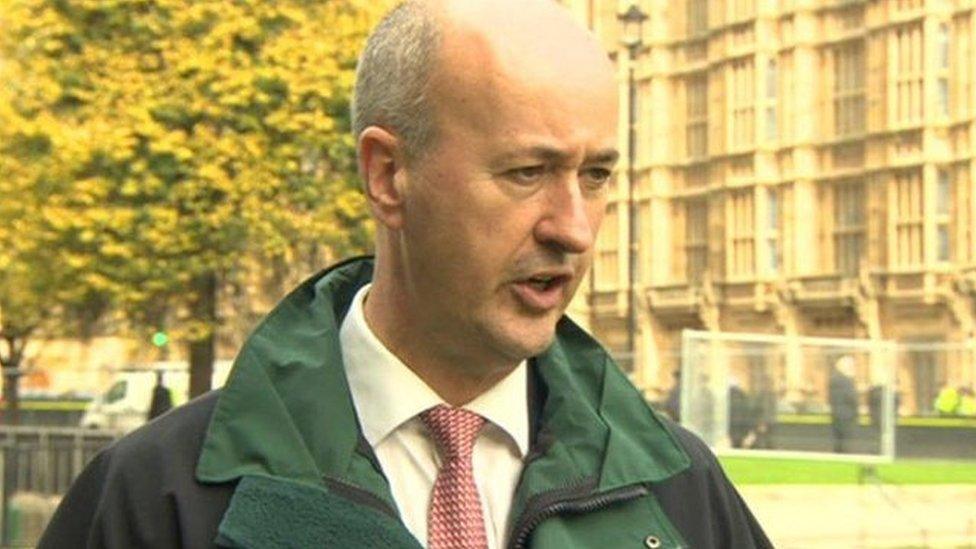
Labour MP Geraint Davies says Wales spends £15bn a year more than it raises in tax
Sion Jobbins, who chairs Yes Cymru, which campaigns for Welsh independence, admits it has a "mountain to climb" if it is to ever achieve its goal.
"We're not making claims that we can have independence tomorrow, but I think a few factors are changing.
"I think people are asking questions. I'm seeing people who've always been quite independent-minded now have the confidence, they're coming out of the closet, they're talking about it, they feel confident to discuss it.
"And we're seeing a lot of people who are moving from indy-curious to [an] independence way of thinking.
"The rally we had in Cardiff, I was surprised [by] the number of people I saw there, people I never expected to see at a pro-independence rally."
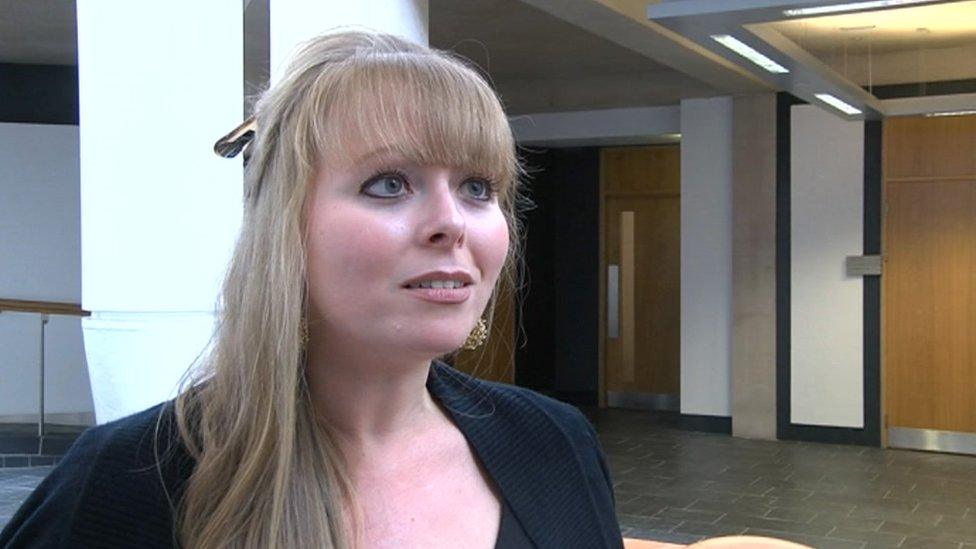
Plaid Cymru AM Delyth Jewell: "Stop the world, Wales wants to get on"
Geraint Davies, Labour Swansea West MP, wants more money and more "self-government" for Wales, but does not believe the sums add up for independence.
"We spend £15bn more [each year] than we raise in tax because, sadly, in Wales the wages are something like 70% of the UK average, and that's why we get the billions of pounds of convergence funding [EU aid for poorer areas]."
"If tomorrow we were independent we'd suddenly lose that £15bn.
"In the event we were part of the EU obviously we'd get some convergence funding but then we'd face a tariff block at the border [with England] and 60% of our exports outside Britain go to the EU but most of our sales go between Wales and England.
"So whilst I want more money and more self-government [for Wales] if you go as far as independence you basically cut off your nose to spite your face."
Delyth Jewell, Plaid Cymru AM for the South Wales East region: "These are all important questions that we're looking at."
"This is the start of something really exciting, more and more people are talking about it.
"To re-coin a phrase - stop the world, Wales wants to get on."
- Published9 July 2019
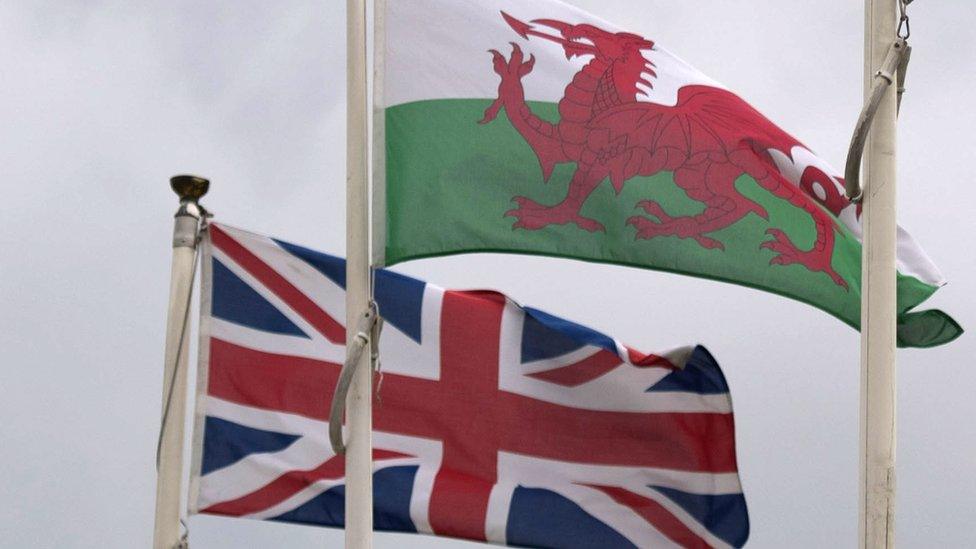
- Published18 June 2019
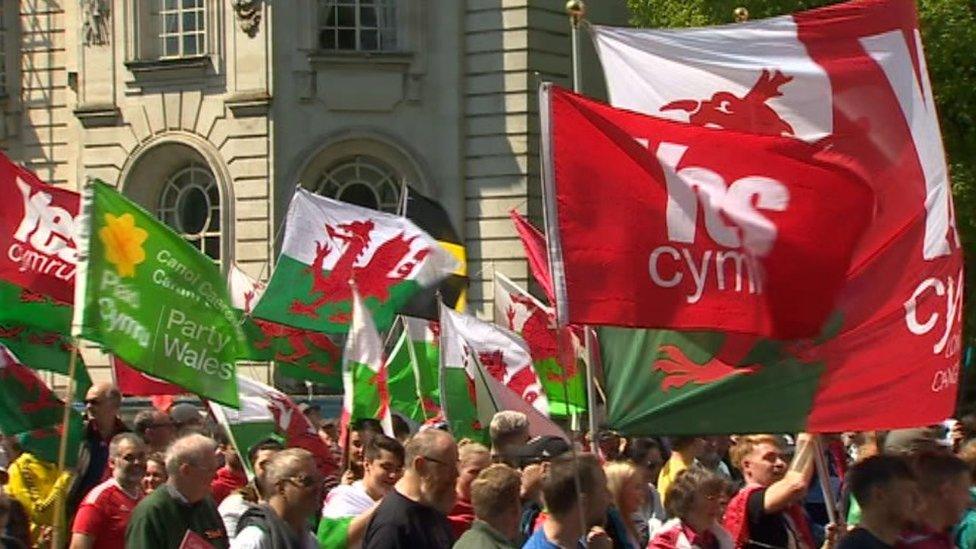
- Published26 April 2019
